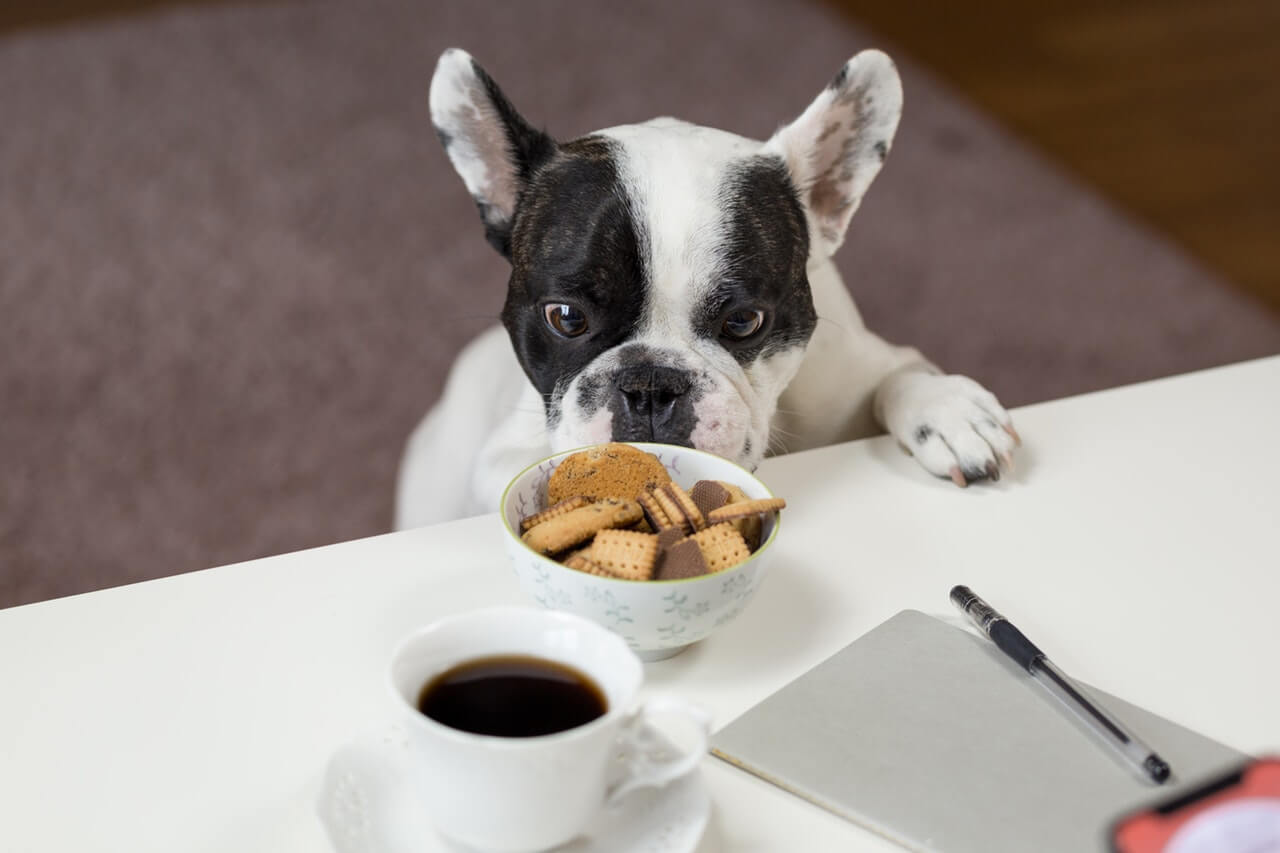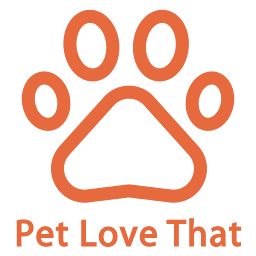
Many dog lovers consider their pets as family members. They play with our kids and provide for us a very efficient security system, throughout a day. As a result, these fortunate dogs become one such part of the household that they often entitle to have a taste of whatever is available on the dining table.
From small pieces of hot dogs, bacon or toast during breakfast to the main courses served during lunch and dinner. They need everything. Consequently, it has become a regular practice for dog owners to share their food with their loyal furry friend. After all, our pets are our pals. We do a lot of things together.
Admittedly, there is nothing wrong with giving them a tiny piece of food from our plate, right? Well, maybe not. In reality, some of the foods we eat on a daily basis may be beneficial to us. But not to our dogs.
Most fruits and vegetables we consume are necessary to keep us healthy. But in the case of dogs, these items may create havoc on our dog’s digestive system. That is why knowing what they can and cannot eat is vital. It is crucial concerning the safety and health of our canine friends.
Table of Contents
Why Is It That Some Foods Are Safe for Humans but Not for Dogs?
Foods that are safe for humans and even other animals can be toxic and poisonous to dogs. It is because humans and canines have different metabolic processes. They have different metabolic rates or the speed at which food is broken down into energy.
Our digestive systems have different complex structures and can produce enzymes in different kinds and amount. Therefore, things that we can easily digest through our intestinal flora may be entirely different from what a dog’s digestive system can tolerate.
Foods That Are Unsafe for Dogs
Sometimes, a dog gives us a dramatic look saying “can you give me some of that?” It’s challenging for a dog owner to resist the urge to share with him a piece of whatever is on our plate. It is a perfectly normal reaction for a dog-mom or a dog-dad.
However, before giving in to this urge, you must understand which foods are safe and unsafe for your furry friend. Surely, you hate disappointing your furry pal but hold your horses.
Likewise, remember that the choice of food to give them can either keep them thriving or put them in a dangerous situation. So the guide below explains which menu you should never give to your dog.
1. Apple Seeds and Cores
The coating of apple seeds contains a chemical known as amygdalin, which releases cyanide when ingested. It can be poisonous, even lethal to your dogs when ingested in large amounts.
These seeds can cause several symptoms such as difficulty in breathing, dilated pupils, shock, and in some cases, may cause death to your dogs. To avoid this from happening, it is best always to eliminate apple from his diet.
2. Alcohol
Never give alcohol to your dog or any food that contains alcohol. It can cause a lot of dangerous symptoms which may include intoxication, the difficulty of breathing, poor coordination, abnormally high acidity, and in some worse cases can even cause coma or death.
3. Coconut Oil
Coconut oil has numerous benefits to humans, but when ingested by dogs, it can cause severe diarrhea and stomach upset, which can potentially lead to dehydration. It includes eating coconut milk, flesh or water.
4. Avocado
Avocados contain a toxin known as persin, which can cause your dog to suffer vomiting, diarrhea, and cardiac congestion. Another danger of eating avocado is ingesting the fruit’s pit. It is full of persin and can be a possible choking hazard.
If your dog eats a large amount of avocado pit, then this can be a medical emergency. It may require an inspection from a veterinarian.
5. Grapes and Raisins
Grapes and raisins are delicious, but not for dogs. These foods can cause severe kidney failure and severe diseases to your pet. Even a small amount of grape or raisins can cause symptoms. Your dog should avoid them at all costs.
6. Chewing gums, candies, toothpaste and mouthwash
All of these contain a certain amount of xylitol, a hazardous substance to dogs. It can cause vomiting, seizures, poor coordination, and liver function.
7. Apricot stems, leaves, and pits
These parts of the fruit contain cyanide especially when wilted or rotten. It can cause dilated pupils, the difficulty of breathing, bright red dilated pupils, shock, and in worse cases, death.
8. Cat Food
Cat food has vitamins and minerals that are well suited for cats, but not for dogs. It has a very high-fat content which can lead to obesity, upset stomach, and pancreatitis in canines.
9. Onions and Chives
Aside from causing gastrointestinal diseases, ingestion of onions, especially in large amounts, can cause anemia to dogs. Because they contain the toxins disulfides and thiosulfate (sulfoxides), these are no doubt some of the worst foods you can give to your dog.
10. Chocolate
Ingestion of bromine and caffeine in chocolates can cause nervous system stimulation and increased heart rate to dogs. Although the type and amount of chocolate ingested determine the extent of the effect it can have on your pets, this can cause serious concerns in the long run.
Complications may include vomiting, restlessness, tremors, increased heart rate, and urination, seizures, and death.
11. Garlic
Like onions, garlic causes severe stomach upset and anemia.
12. Coffee, Tea or other Caffeine
Within 2 hours of caffeine ingestion, a dog can show symptoms of restlessness, increased heart rate and elevated blood pressure, seizures, tremors, and even death.
13. Raw meat, bones, and raw egg
Aside from containing bacteria that can cause infections such as Salmonella and E-coli, some rough and pointed edges of bones can also cause injuries to your dog’s intestine.
14. Corn on the Cob
While the corn itself is not dangerous to your dogs as long as it’s eaten in a small amount, a dog will frequently devour a whole kernel, and this is what can cause possible choking and Intestinal obstruction to your pet.
15. Chamomile
A daisy plant herb that often causes dermatitis, anorexia, vomiting and diarrhea, long-term exposure and use of this plant can also lead to hemorrhagic tendencies on dogs.
16. Fat Trimmings
Ingestion of either cooked or raw fat trimmings has a potential of causing pancreatitis.
17. Chips and Salty food
Giving your dog some chips that you’re snacking on may seem harmless. However, it can cause severe symptoms to your dog. It includes excessive urination and thirst, or seizures, tremors, and even death in severe cases of sodium toxicity.
18. Human Vitamins
What can be the right amount of vitamins and minerals for you can be an overdosage when it comes to your dogs. That is why human vitamins, especially prenatal vitamins which are high in iron should never be given to your pets to avoid iron or vitamin toxicity.
19. Cherry Steams and pits
These parts of the fruit contain the toxic substance known as cyanide which causes difficulty in breathing, shock, dilated pupils, and in severe cases, death.
20. Macadamia Nuts
Causes vomiting, depression, tremors, and hyperthermia in canines.
21. Liver
Although useful in small amounts, too much of it contains a very high content of Vitamin A. It can affect your dog’s muscles and bones.
22. Almonds, pecans, walnuts, and peanuts
All of them have a high-fat content which can cause pancreatitis.
23. Milk and Dairy
While a little serving will not cause any harm to your pup, too much of it can cause diarrhea and food allergies.
24. Mustard Seeds
It can cause diarrhea when ingested by dogs.
25. Rhubarbs
According to vets, rhubarbs can cause tremors, hypersalivation and possibly kidney failure.
26. Tomato plant
Ingestion of this by your dog can cause possible solanine toxicity. The symptoms may vary from anorexia, hypersalivation, lethargy, behavioral change, weakness, confusion, and slow heart rate or bradycardia.
27. Citrus Fruits
Even small amounts of Citrus can cause extreme acidity and stomach upset to your dogs.
28. Sugar
Before feeding your dog anything that contains sugar, make sure to check the label because too much of it can cause obesity and even diabetes to your dogs.
29. Xylitol
Xylitol, mainly used as a sugar substitute in candies, gums, and even baking products are generally safe for humans. But it is very toxic to dogs. Even minimal amounts may cause seizures, low blood sugar level, kidney failure, and sometimes even death.
30. Licorice
Large amounts of this can cause adrenal gland issues and severe muscle damage to your dogs.
31. Yeast
Ingestion of yeast in doughs can cause potentially fatal gastric bloat because of increased gas production.
Conclusion
As much as you want to keep your dogs happy at all times, we need to refuse the urge of giving them what we usually eat. At least avoid this feeling until we are sure that the food they are asking for is entirely safe.
Having a pet is a lot of fun, but it’s also a huge responsibility. Even though we regard our dogs as part of the family, they still have different needs when it comes to food. While it’s true that some human foods are safe for canine consumption, there is a lot which is unsafe and can even be poisonous to your dogs.
Furthermore, to keep them safe, avoid giving your pet any human food unless recommended by a veterinarian. As they are safe, it’s always better to be reliable than sorry.
You May Also Interested In:
- Are Dogs Allowed In Menards?
- Do Dog Whistles Work? Dog Whistles Benefits and Training
- Are Dog Doors Safe?
Share this:
- Click to share on Twitter (Opens in new window)
- Click to share on Facebook (Opens in new window)
- Click to share on Tumblr (Opens in new window)
- Click to share on Pinterest (Opens in new window)
- Click to share on Reddit (Opens in new window)
- Click to share on Telegram (Opens in new window)
- Click to share on WhatsApp (Opens in new window)
- Click to print (Opens in new window)
